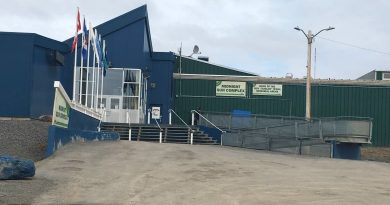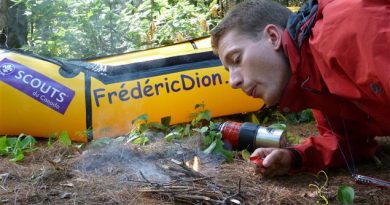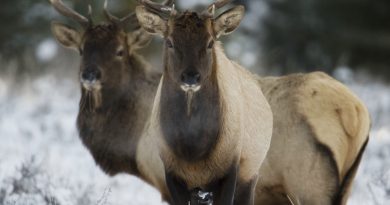Leaving Ukraine was painful but necessary, says family now happily settled in Yukon
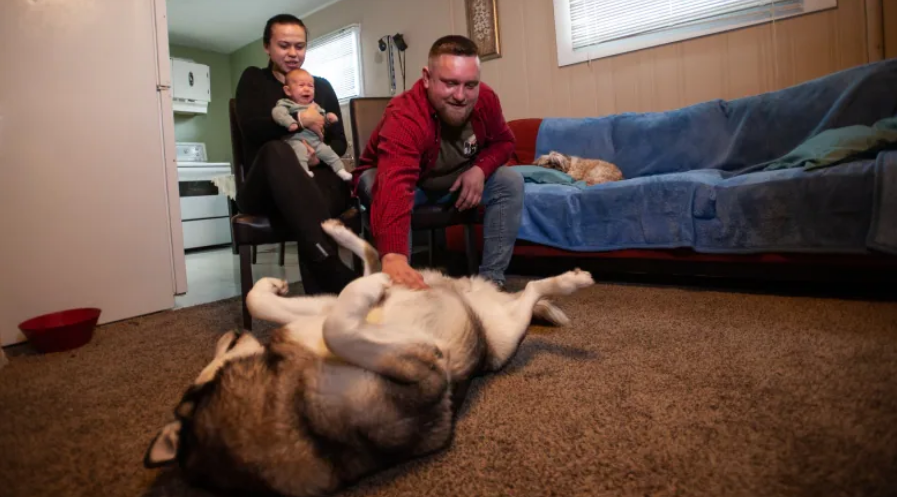
Kyrylo Bozchenko smokes a cigarette and watches his dog lying lazily near what Kyrylo calls an “igloo.”
Inside the snow fort is the dog kennel Kyrylo and his wife, Marianna, used to transport the heavyset Alaskan Malamute from Ukraine to Whitehorse.
“He is home now,” Kyrylo said.
The same could be said of the couple. They arrived in Whitehorse with Kyrylo’s parents in late summer, and say they plan to stay in the city for good.
They aren’t alone. Kyrylo and Marianna are among dozens of people who have emigrated to the Yukon from Ukraine, where war has raged for nearly a year. Between March 7 and Dec. 9, at least 30 people have decided to settle in the territory, according to the Yukon government.
Just getting to Yukon’s capital was no small feat for Kyrylo and Marianna. They say the decision to leave Ukraine was as hard as it was necessary.
They originally fled Donetsk, a region to the east that was quickly consumed by intense fighting early on in the war. The area continues to be heavily pelted by Russian rockets.
“We just took our dogs, only dogs,” said Kyrylo, adding most everything else was left behind.
“You get this feeling that you might not wake up tomorrow.”
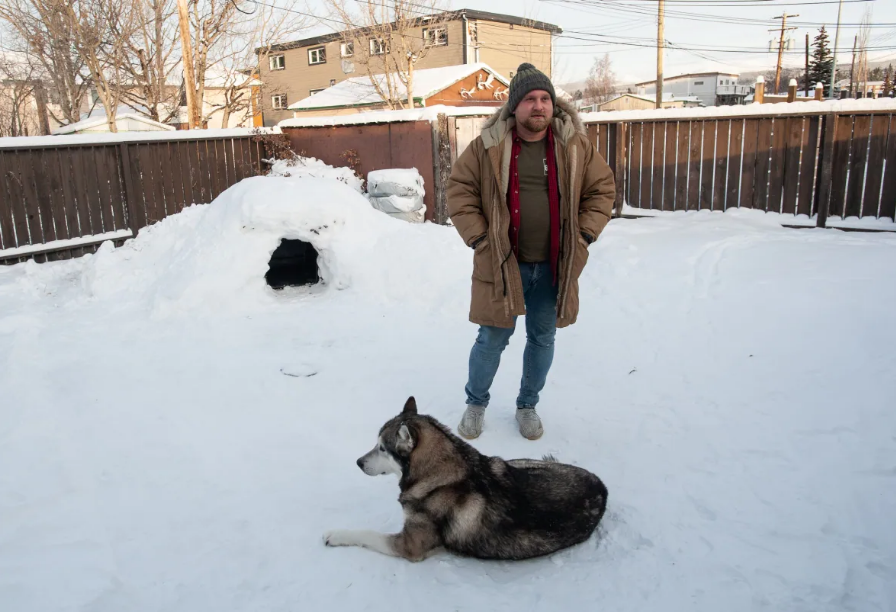
From Donestk, the couple travelled to Lviv; from Lviv, to the Czech Republic; and, finally, they arrived in Frankfurt, Germany, where they then boarded a direct flight to Whitehorse.
Through every twist and turn of the journey, Marianna was pregnant.
A fresh start
Not long after the couple moved to Whitehorse their family started to grow.
Marianna gave birth to the couple’s daughter, Emilia, at the Whitehorse General Hospital about three months ago.
Hospital staff took great care of her, she said. They used iPads to help translate as Marianna cannot speak English.
“I’m super happy with the support, that people are willing to go an extra mile to help,” she said, with help from a translator.
Members of the city’s large Ukrainian community and the Yukon government have been working together for months, intercepting people at the Whitehorse airport who are fleeing the war. From the airport, government workers and volunteers help people find housing, and provide information on jobs and the settlement process.
Kyrylo said Yukoners have proven kind.
Oftentimes, Kyrylo said he will go to a local butcher, who gives the family free dog bones.
“I think everybody here wants to help us.”
Soon, the couple’s family will become bigger still. In a couple months, Marianna’s mother will join them from Ukraine.
Still, Marianna said being away from their country is painful, and there’s a near-constant worry about relatives overseas.
“We miss loved ones a lot and of course we would love to be able to go back home, but it’s so dangerous right now,” she said.
Kyrylo agrees, but he said he personally hasn’t looked back since arriving in Whitehorse.
“Of course, it’s difficult,” he said. “It’s my native land, but when I feel myself and my family are [not safe], I should go.
“Ukraine is never going to be the same again. This is something we never stop thinking about.”
Related stories from around the North:
Canada: Recognition of Inuit homeland in new policy important step towards self-determination: Canadian Inuit leader, Eye on the Arctic
Finland: Project to educate Finnish students about Sami needs to be permanent: Youth Council, Eye on the Arctic
Greenland: International Day of the World’s Indigenous Peoples important to mark says Inuit org, Eye on the Arctic
Norway: Russian Sami activist protesting Ukrainian conflict seeks asylum in Norway, The Independent Barents Observer
Russia: Fleeing Russia, Andrei seeks asylum in what for him is still historical homeland, Sapmi, CBC News

